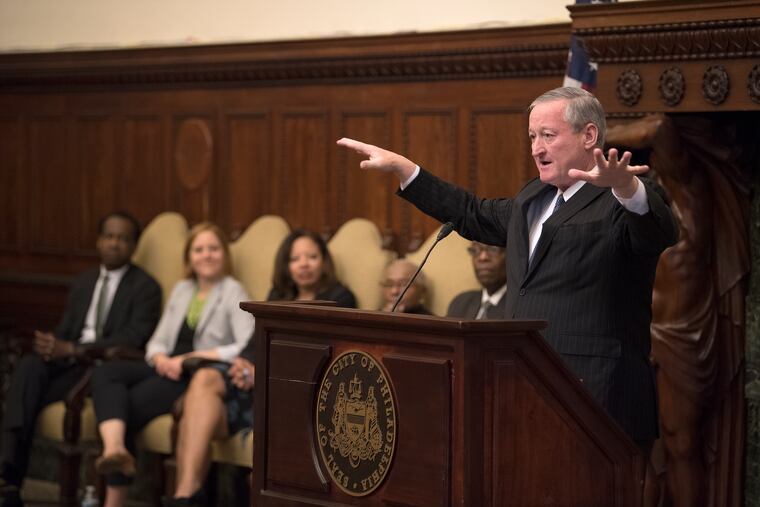Philly school board nominating process has lacked transparency | Opinion
The mayor should prioritize experienced educators to round out the school board.

Mayor Jim Kenney convened a panel on Dec. 16 to nominate nine candidates, from 82 applicants, to fill three vacant Board of Education seats. These nominees go to the mayor for his picks, which City Council will need to approve. Those selected will assume a wide range of BOE responsibilities, including to oversee all major policy, budgetary, and financial decisions for the district, to appoint and evaluate the superintendent of schools, to adopt annual operating and capital budgets, and to authorize charter schools.
Some important elements went missing from this selection process thus far, as has been the case since the board was reestablished in 2018. Panel deliberations took place behind closed doors, without public involvement or transparency. There was no opportunity for the community to ask questions and receive responses about the full list of applicants, which was not made public, or any disclosure as to how the panel reached their decision. The first time applicant names were released was via the list of chosen nominees. Only a handful of public statements took place during the meeting when the panel made the announcement.
» READ MORE: There’s 1 requirement to sit on the Philly school board nominating panel. Not everyone met it.
Clearly, the closed process made some errors. In fact, one of the 13 panel members who made nominations doesn’t even live and vote in Philadelphia, which is required by the City Charter. This mistake, and the larger process, leave the city with many unanswered questions: Why didn’t the panel seek more active input from parents, teachers, and students? What criteria did they use to get down to the nine nominees, and what specific characteristics or backgrounds were they looking for?
Given that Philadelphians don’t get to vote for their Board of Education members in their city (the only municipality in Pennsylvania that has not had an elected school board), the mayor and his nominating panel must take steps to become more open about this process.
In addition to the lack of transparency and public involvement, the results of the panel’s December vote are cause for concern. As education activist Lisa Haver points out, the finalist pool includes business people, lawyers, bankers, and “edupreneurs,” some without any apparent experience in schools, rather than leaning toward educators, parents, and education activists.
Mayor Kenney and Council should use this opportunity to bring to the board more educators, who know personally what children require to learn and thrive in school. The mayor must consider what makes a truly effective Board of Education member.
» READ MORE: Should the Philly school board be elected instead of appointed? A parent and city official debate. | Pro/Con
A wise approach is to look for people who exhibit the following essential traits and beliefs:
Commitment to the public purpose of schools in preparing citizens for a more peaceful, sustainable, and equitable world.
Belief in every child’s capacity to learn and perform at the highest levels, with a focus on serving all children within the district.
Ability to understand data, including that used to measure academic performance and progress toward specific goals, to enable smart budget decisions by the BOE.
Strong commitment to address the full range of inequities that create obstacles to learning for too many district students.
A desire to find, support, and trust expert teachers.
Willingness to create and actively use channels for transparent communication with teachers, students, parents, and community members.
Background in an area that will add expertise and insight, such as curriculum development, while complementing that of other board members.
Ability to listen and question and compromise.
Availability to commit to thorough preparation, meetings, public hearings, and time spent in schools.
The Board of Education exerts a powerful influence over the future well-being of the district. Going forward, Mayor Kenney must seek the same public input that was lacking in the nominating panel’s choices. Teachers, parents, students, and community members deserve a voice in this critically important process. And educators with personal experience in our schools deserve seats on the BOE.
Deanna Burney holds a doctorate in administration, planning, and social policy from Harvard University and has spent 25 years working in urban schools and school districts.